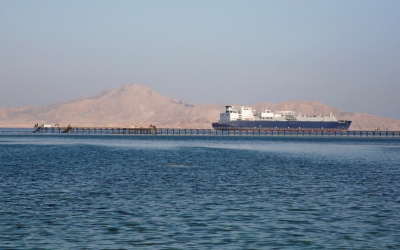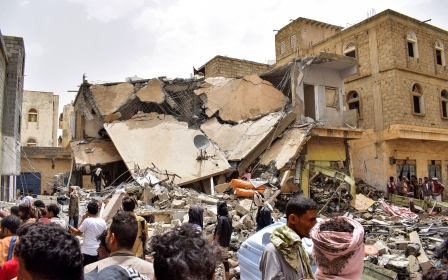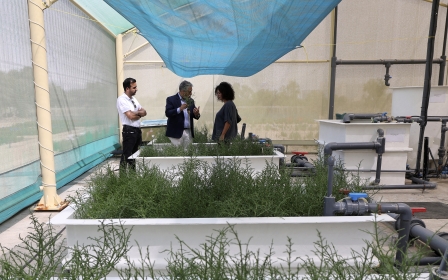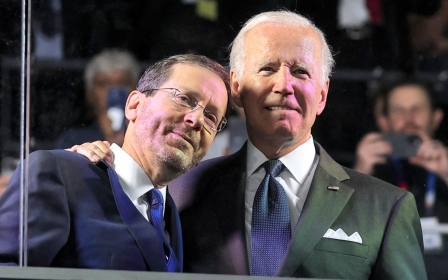Arabic press review: Egyptian President Sisi scolded by his former US teacher
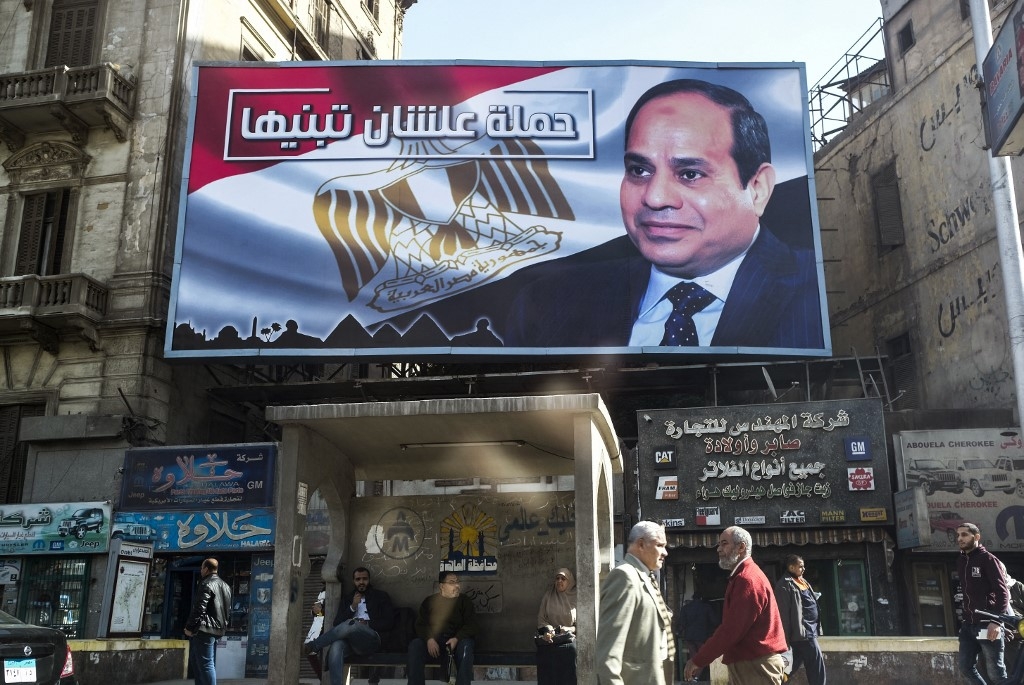
Sisi's former professor criticises his policies
A professor who taught Egyptian President Abdel Fattah el-Sisi at the US Army War College has said she has been "very disappointed" with some of the events in Egypt during her former student's rule, according to an exclusive interview given to Arabi 21.
"I am concerned about the precarious economic situation of the largest number of people, as well as about the political and security situation, which is caused not only by the war in Ukraine, but also by policies over the past years," Sharifa Zohour told Arabi 21.
Zohour said she had recently submitted an official request for an interview with Sisi, who has ruled Egypt since 2014, for the purposes of writing a biography - but he refused.
In the interview, the professor - who is currently director of the Institute of Middle Eastern, Islamic and Strategic Studies in Berkeley, California - criticised Sisi's operations in Sinai, where the army has been fighting an Islamic State-backed insurgency for many years.
"I do not know what lessons el-Sisi learned from what we gave him at the US War College, because combatting terrorism is not the army's preferred method, and el-Sisi knows the differences between counterinsurgency and counterterrorism, but in the end I am not sure that he was able to apply them in this malicious war or not," she said.
"This campaign lasted longer, and it was worse than it might look, although the situation is better than it used to be. It was a fierce and difficult battle, and the government was severely criticised for its actions against Sinai people, and whether they were truly treated as other Egyptian citizens.”
Zohour added that the removal of former Defence Minister Sedki Sobhi, whom she also taught, "is very mysterious to me, but I think that these decisions are collective from the military leadership and not taken individually, and they are decisions related to ensuring stability and the continuation of the army's influence”.
In June 2018, Sisi abruptly dismissed Sobhi, who had served as Minister of Defence since 2014, despite their strong relationship.
Zohour called for the involvement of the Muslim Brotherhood and all other political forces in the "national dialogue" in Egypt, and said that "the idea of reconciliation and dialogue is very important”.
"Many media voices in Egypt, which were more independent in the past, have been muted. I do not think that this situation is good for society," she said, adding that "the longer a society lives in an anti-democratic state, the more difficult it is for it to create a democratic state that can allow the existence of other opinions that differ from those of the authority."
Yemenis optimistic about Biden's visit to Middle East
Yemen's foreign minister said he hoped US President Joe Biden's ongoing Middle East visit could lead to the "resolving" of the long-running war in Yemen.
According to the Saudi Asharq Al-Awsat newspaper, Ahmed Awad bin Mubarak said that the president's visit to Saudi Arabia on Friday was "an opportunity to achieve regional and international consensus" that could lead to an end to the conflict.
He described Yemeni-American cooperation as "strategic" and said it went beyond combatting terrorism to backing Yemeni institutions, providing humanitarian aid, and supporting the Yemeni people in various crises and stages.
Biden is due to fly out to Saudi Arabia on Friday to meet Saudi Crown Prince Mohammed bin Salman, ahead of a conference of regional leaders. He is flying to Jeddah from Israel, a first for an incumbent US president.
Bin Mubarak stressed that ensuring the stability of energy markets globally, and the flow of energy and food supplies passing through the region, and Yemen in particular, required a united front against Iranian interference in the country and against the Iran-backed Houthi rebels.
The Yemeni minister expressed his hope that the current US administration would reconsider reclassifying the Houthis as a terrorist organisation, after their classification was revoked by the US in February 2021.
Islamic State resurgence in eastern Syria
Islamic State militants have begun to reappear in eastern Syria, with new indications emerging of the organisation's increasing strength in the country, according to the London-based Al-Quds Al-Arabi newspaper.
Militants affiliated with the group in the eastern countryside of Deir Ezzor reportedly killed a young man in the town of Al-Hawaij on Tuesday, during a football match, despite the stadium being crowded with spectators. Witnesses confirmed that two IS members shot a young man named Alaa from the town of Dhiban during the match and then withdrew on their motorcycle, while chanting the phrase "The Islamic State will remain”.
Witnesses added that "the two elements threatened to kill anyone who approached”.
IS later claimed responsibility for the attack, accusing the young man of working for the Syrian Democratic Forces (SDF) in Deir Ezzor.
Journalist Zain al-Abidin al-Akidi denied the affiliation of the dead man to the SDF, stressing that Alaa was not affiliated with any military faction. Akidi added that assassinations are carried out by IS in the area on an almost daily basis, especially in the areas under the control of the SDF and the Badia, which is under the control of the Syrian government.
According to Akidi, the activity of IS cells was almost never absent from these areas, and in the past three days they had killed four people. He also said that IS had an increasing presence in Deir Ezzor, and its members were collecting money from people by force.
Jordan: America is a key partner
Jordan's Foreign Minister has described the US as a key partner to Jordan, with a major role in efforts to resolve regional crises and achieve security and stability in the region.
In an exclusive interview with the Saudi Al-Sharq channel, Ayman Safadi stressed the importance of Biden's visit to the region, adding: "We have been in constant coordination with Arab brothers with a view to bringing about an effort to contribute to our interests, to stabilise security and stability in the region and to deal with many of the challenges that unfortunately are getting worse in our region.”
In response to a question about Arab coordination, Safadi said, "We all want this summit to be a space for discussion on how to serve our common interests, and our interests complement each other. We hope that this summit will achieve something in this direction.”
Safadi added that, for Jordan, the Palestinian issue "is the central issue, and the same is true for our Arab brothers”.
"Israel is now going through a transitional phase, so we do not expect a major breakthrough in terms of returning to negotiations now," he said. "However, the United States has positions that we believe are advanced from its positions during the past period, in terms of emphasising the two-state solution, rejecting unilateral measures that undermine this solution, and emphasising the need to respect the historical and legal situation in Jerusalem and its sanctities.”
*Arabic press review is a digest of news reports not independently verified as accurate by Middle East Eye.
Middle East Eye delivers independent and unrivalled coverage and analysis of the Middle East, North Africa and beyond. To learn more about republishing this content and the associated fees, please fill out this form. More about MEE can be found here.


